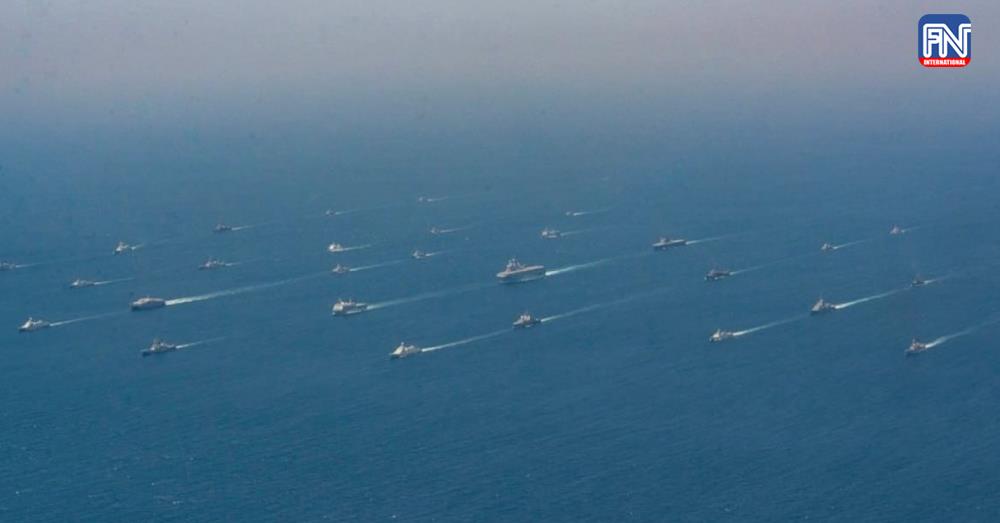JAKARTA, June 5 (AFP) - The United States and China have sent warships to the multinational naval drills that began in Indonesia on Monday, despite the rifts between the two powers.
Washington and Beijing are engaged in fierce competition on diplomatic, military, technological and economic fronts.
The US military has stepped up its Asia-Pacific operations to counter an increasingly assertive China, which has recently staged several rounds of war drills around Taiwan.
But both dispatched warships to the 2023 Multilateral Naval Exercise (MNEK) hosted by Indonesia in its eastern waters off Sulawesi island from Monday to Thursday.
The US Navy has sent a littoral combat ship to the exercise, a US embassy spokesperson in Jakarta told AFP on Sunday.
The drills will allow the United States to "join together with like-minded nations, our allies and our partners to work on solving common challenges" such as humanitarian and disaster response, the spokesperson said.
The Chinese defence ministry said last week that it would send a destroyer and a frigate at the invitation of the Indonesian navy.
Australia and Russia were also expected to send warships, according to an Indonesian military list seen by AFP.
Officials said there would be 17 foreign vessels involved in the drills, which will focus on non-military operations with key allies.
"MNEK is a non-war training which prioritises maritime cooperation in the region," Indonesian navy spokesperson I Made Wira Hady said in a statement.
Washington and Beijing have clashed this year over a number of Asia-Pacific issues including Taiwan, a self-ruled, US-backed island that China considers its territory.
They have also been involved in a diplomatic tussle over Pacific island nations.
Tensions skyrocketed when an alleged Chinese spy balloon traversed the United States before it was shot down.
US Secretary of Defense Lloyd Austin at a defence summit in Singapore last week that the two nations needed to renew dialogue to avoid "misunderstandings" that could lead to conflict.
Beijing had declined an invitation for its defence chief to meet Austin on the sidelines of that summit.
